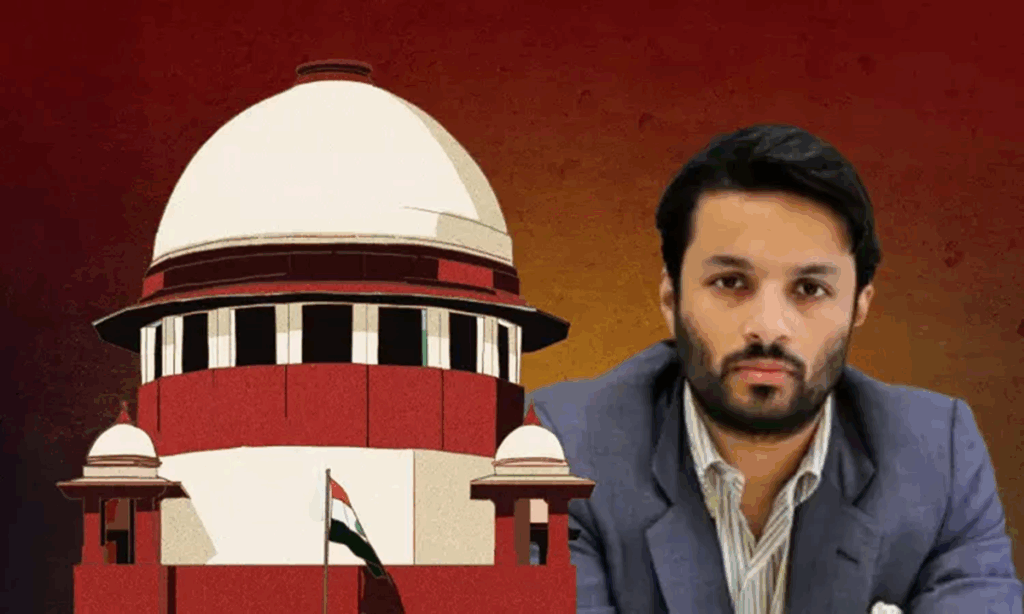New Delhi: The Supreme Court of India has granted interim bail to Ali Khan Mahmudabad, an associate professor at Ashoka University, arrested for his social media comments on the recent India-Pakistan military tensions. The arrest, which sparked widespread debate, was based on allegations of endangering national sovereignty and promoting enmity, charges Mahmudabad denies. The court’s decision comes amid criticism from academics and rights groups, who labeled the arrest as an attempt to curb free speech.
Background of the Arrest
Mahmudabad, a political science professor known for his work on Indian Muslim history, was detained on Sunday from his Delhi home. The arrest stemmed from two social media posts commenting on India’s military actions against Pakistan following a deadly attack in Pahalgam, Kashmir, on May 7, 2025, which killed 26 people. India accused Pakistan of supporting militant groups, a claim Pakistan rejected. The posts, dated May 8, included remarks on the brutality of war and praised the role of two women officers—Colonel Sofiya Qureshi and Wing Commander Vyomika Singh—in leading military briefings. However, a BJP youth activist, Yogesh, and Renu Bhatia, head of Haryana’s State Commission for Women, filed complaints, alleging the posts undermined national unity and disparaged the officers.
Supreme Court’s Ruling
On Wednesday, May 21, 2025, the Supreme Court ordered Mahmudabad’s release on interim bail but declined to stay the investigation. The court stated, “Based on the two online posts, no case for halting the investigation is warranted.” A three-member special investigation team was appointed to probe further, and Mahmudabad was barred from posting or speaking online about the investigated remarks. Legal experts suggest this reflects a balance between free speech and national security concerns, with the court ensuring due process while restricting potentially inflammatory content.
Public and Institutional Reactions
Ashoka University issued a statement expressing relief at the court’s decision, noting, “The bail provides great comfort to Mahmudabad’s family and our community.” The arrest drew sharp criticism from academics, activists, and opposition leaders. Congress president Mallikarjun Kharge called it a sign of the BJP’s “fear of dissenting opinions.” Samajwadi Party leader Akhilesh Yadav indirectly referenced the arrest on X, highlighting the suppression of truth. A joint statement by 150 academics from India and abroad condemned the arrest as “baseless” and a form of “state censorship,” citing a 2024 Freedom House report that noted a decline in India’s press freedom score to 31/100.
Context of the India-Pakistan Conflict
The controversy follows heightened tensions after India’s airstrikes on Pakistan, prompted by the Pahalgam attack, which marked the deadliest incident in Kashmir since 2021. The four-day escalation, involving cross-border shelling and airstrikes, ended with a US-brokered ceasefire on May 11, 2025. According to the Indian Ministry of Defence, the operation targeted militant bases, with 12 confirmed militant casualties. Pakistan reported 8 civilian deaths, escalating diplomatic friction. A 2025 Institute for Defence Studies and Analyses report noted that such conflicts often fuel domestic polarization in India, amplifying scrutiny of public figures like Mahmudabad.
Allegations and Defence
The complaints against Mahmudabad centered on his May 8 post, where he critiqued “mindless war advocacy” while supporting India’s response. He highlighted the inclusion of Colonel Qureshi, a Muslim officer, in briefings but urged protection for victims of hate crimes, referencing a 2024 Human Rights Watch report documenting 47 mob lynching cases in India since 2019. The Haryana Women’s Commission alleged his remarks belittled the women officers, a claim Mahmudabad refuted in a written response on May 14, stating his comments were “misunderstood” and meant to praise their role. His lawyer, Mohammad Nizam Pasha, noted the commission refused to hear his legal team, raising procedural concerns.
Broader Implications
The case underscores India’s ongoing debate over free speech and national security. A 2025 Pew Research Center study found 62% of Indians believe social media criticism of the government should be restricted during conflicts, reflecting public sensitivity. Mahmudabad’s aristocratic background and affiliation with the Samajwadi Party have also fueled speculation of political motivations behind his arrest. The Supreme Court’s decision to allow the investigation to proceed signals a cautious approach, balancing individual rights with public order concerns in a polarized climate.


